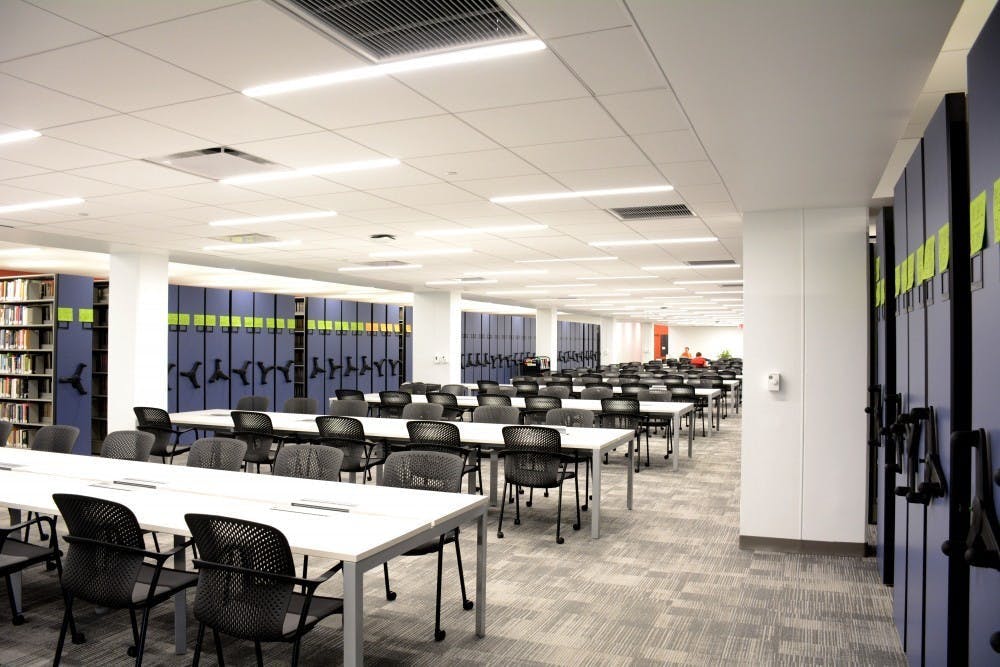During yet another stress-filled finals season, students were once again forced into unhealthy, often binge-centered habits in order to survive the last few assignments separating them from winter break. Every year students pack into Clemons Library, where they consume higher levels of caffeine to get through an excruciatingly long week of exams and papers. Much of this is fostered by the University’s stress culture — a common state of academic competitiveness that encourages unhealthy behavior and poses significant threats to mental wellness.
In May, Humans of University — an obscure website that publishes stories about life in college — released a list of the 50 most depressed student bodies across the United States. The University was ranked sixth, placing above seven of the eight Ivy League schools — with the University of Pennsylvania coming in first place. Yale University ranked seventh overall, with the other six ending up somewhere later in the top twenty. While the site does not provide any background information as to how it drew these conclusions — thus calling into question its reliability — it has recently resurfaced and sparked very important conversations among students about the list’s implications.
The list became prevalent when a student posted a screenshot in November, underlining the University, along with the caption, “Woooooooooow.” One student even took to Twitter with a lengthy thread explaining why, in his opinion, University students are so depressed. At one point he says, “The culture at U.Va. is so bad that I literally have nightmares about not completing school work on time or doing poorly on an important assignment,” and he ultimately decides to stay awake studying instead of continuing to sleep.
One student wrote a blog post saying, “The competition culture at U.Va. insists that stress levels among peers must equate in order to lead to mutual success, meaning that both parties walk away from the “I’m stressed- me too” interaction stressing about being stressed.”
To many, this behavior and stress is not abnormal. In fact, it is the accepted state of being at the University, specifically during testing seasons such as midterms or finals. To others, however, this behavior is extremely concerning. Students should not be pulling all-nighters to obtain passing grades, skipping meals to have an extra hour in the library or neglecting their own mental and physical wellness to adhere to the unrealistic expectations of the University.
But that is exactly what happens, especially when students are thrown into high-stress environments with minimal resources and the pervasive stigmas that surround mental health.
The University chapter of the National Alliance on Mental Health recently called for “better mental health education and improved mental health resource allocation at the University” through the launch of a petition. The petition cited two very alarming statistics. The first being that the second leading cause of death among college-aged students is suicide and the other being that approximately one-fourth of all college students have a diagnosable mental health condition. Coupled with recent spikes in the number of students who are seeking psychological services around Grounds, there is an apparent need for increased focus on mental health awareness, especially during high-stress scenarios like finals.
In fostering a community built on academic success and competition, a certain level of stress is to be expected. When that stress is met with healthy behavior and the appropriate self-care, it can be easily managed. That is not what occurs on Grounds, and it is the responsibility of the University to make the necessary changes needed to address this issue. This could start with increased initiatives around Grounds to bring awareness to the adopted stress culture at the University and how to combat it. More 24-hour resources should be implemented to help students address crises, in addition to improvements at Counseling and Psychological Services. This could potentially mean extending the six free sessions most students are granted. Most importantly, an open and accepting dialogue needs to be created that not only destigmatizes mental health illnesses but also condemns the adopted culture of stress and competition that can often lead to many of these issues. Ideally, this would begin with the University acknowledging the pervasive nature of academic competition, the high stress levels it causes on Grounds and how they plan to address it.
To be clear, I do not believe the University has intentionally created an unhealthy learning environment. However, whether unintentional or not, since it has become one of the best institutions of higher learning in America, this prestigious culture of academics has laid a foundation of competition and anxiety for its students. Thus, the University has a unique responsibility to protect its students’ physical and mental wellbeing, and it needs to do so now, as adequately addressing mental health cannot and should not wait.
Hailey Yowell is an Opinion Columnist for The Cavalier Daily. She can be reached at h.yowell@cavalierdaily.com.







